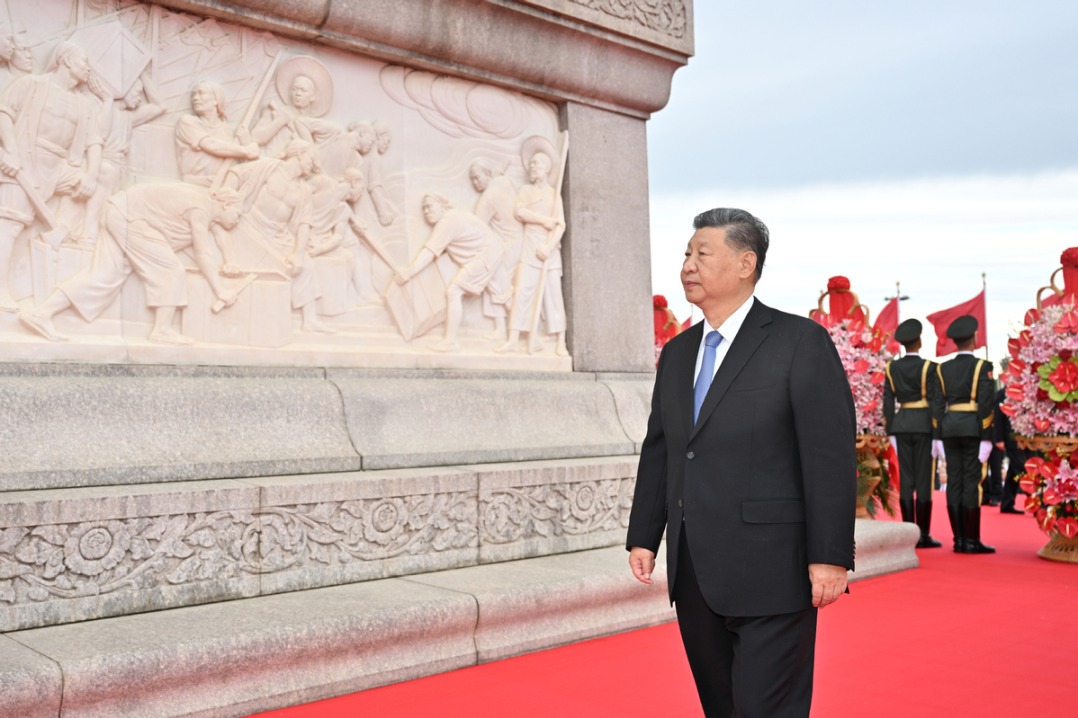Voices rise against reviving China Initiative
By LIA ZHU in San Francisco | chinadaily.com.cn | Updated: 2024-09-24 12:44
There is growing opposition to reviving the controversial China Initiative under a new name, with warnings of harm to Asian American communities, a chilling effect on US research and a waste of national security resources.
The recent passage of an appropriations bill, H.R.1398, by the House of Representatives on Sept 11, has reignited concerns about the now-defunct program. The bill has been sent to the Senate and referred to the judiciary committee.
The China Initiative, launched in November 2018 by the Trump administration to combat economic espionage, was terminated in February 2022 by the Biden administration after the Justice Department acknowledged that the program was racially profiling individuals of Chinese heritage and failing to successfully prosecute cases.
Despite its discontinuation, efforts to revive the initiative have persisted, drawing sharp criticism from various organizations and experts.
The 1990 Institute, a San Francisco-based organization advocating for Asian Americans and constructive US-China relations, has joined the growing list of groups condemning the legislation.
"Similar to the original China Initiative, this bill is likely to exacerbate the already high levels of discrimination that Asian Americans endure without addressing legitimate national security concerns," said Grace Yu, president and board chair of the 1990 Institute. "Although too often treated as dangerous outsiders, Asian Americans have been a vital and positive part of the fabric of American life for hundreds of years."
Yu said that the original program was terminated after it failed to uncover significant national security risks and it was acknowledged that it was harmful to Asian Americans, with many alleged espionage and national security cases ending in acquittal and dismissal.
Other prominent Asian American organizations, including Asian Americans Advancing Justice, the Asian American Scholar Forum, the Committee of 100, the National Asian Pacific American Bar Association and Stop AAPI Hate, have strongly condemned the legislation, describing it as rooted in xenophobia.
"Today, we are once again witnessing an alarming rise in anti-Asian political rhetoric and legislation that is threatening the safety and rights of millions of Asians and Asian Americans in the US," said the groups in a joint statement.
They drew parallels between the current situation and past instances of anti-Asian scapegoating in US history, such as the Immigration Act of 1924, the incarceration of Japanese Americans during World War II, and the recent backlash against Asian Americans during the COVID-19 pandemic.
Michael German, a senior fellow at the Brennan Center for Justice's Liberty and National Security Program and a former FBI special agent, said that the China Initiative not only failed to fulfill its stated purpose but also inflicted serious harm on the research community.
"The program quickly devolved into a campaign of racial profiling and fearmongering that targeted US-based scientists and technologists who were not even suspected of spying or intellectual property theft," German wrote in an article titled "The China Initiative failed US research and national security. Don't bring it back".
"The chilling effect it created within the US scientific community continues to threaten American primacy in science and technology."
The impact of the China Initiative on the scientific community has been substantial. A study by Stanford University in July examined trends among Chinese scientists in the US and found that the number of Chinese-born scientists leaving the country increased by 75 percent since the initiative began, with most returning to China.
The exodus of talent has made it increasingly difficult for US universities and research institutions to recruit and retain top scientific and technological talent from around the world, said German.
He also pointed out that the sheer number of investigations launched under the China Initiative was a relatively meaningless statistic. He argued that if those thousands of investigations didn't result in indictments and convictions, they were at best a waste of national security resources that should have been directed toward genuine threats, and at worst, evidence of abuse.
The American Council on Education and five other higher education associations also expressed concerns in a letter to House leaders regarding H.R.1398 and other bills that would affect US colleges and universities.
They emphasized the "deep and disturbing" impact the China Initiative had on the research community, leading to few actual convictions and many cases ending in dropped charges, dismissals or acquittals.
The letter also strongly opposed H.R.1516, the "DHS (Department of Homeland Security) restrictions on Confucius Institutes and Chinese Entities of Concern Act", which creates a new category of "Chinese Entities of Concern" so broadly defined that it would likely include most Chinese colleges and universities.
The organizations said that such a broad ban would likely end student-exchange programs between US and Chinese institutions, study-abroad programs for US students in China, and important research and development work on issues of national importance.
























